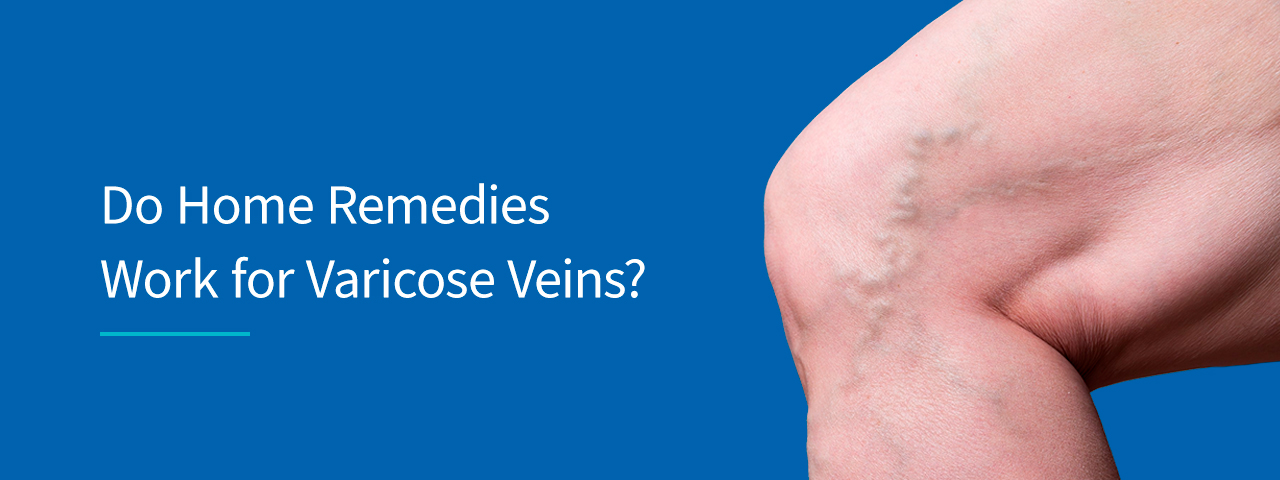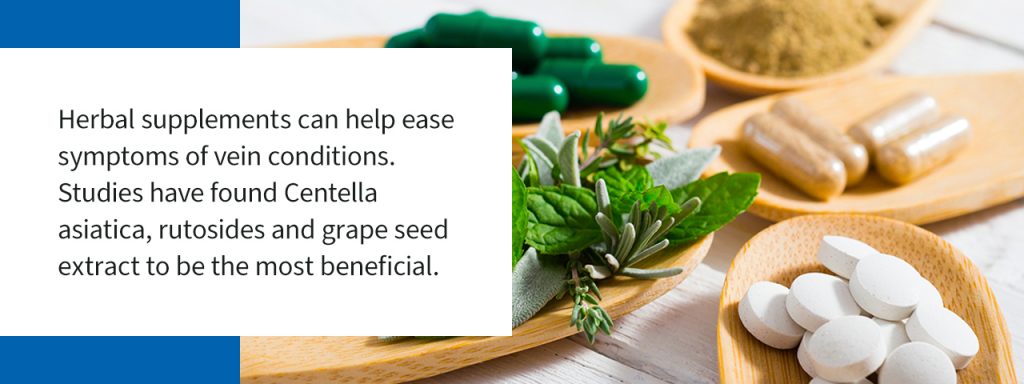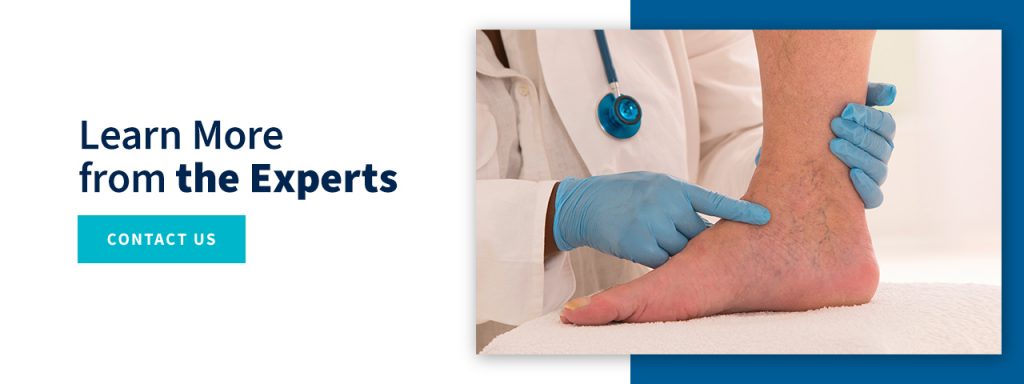
Many factors can determine your risk of developing varicose veins, including your gender, profession, pregnancy, or family history. With so many different risk factors, are there ways to lessen your risk of developing them? The answer is yes! Even better, many of these remedies are natural and easy to adopt.
To understand why these remedies are great for varicose veins, it’s first important to know what causes this condition. Your veins have valves that are constantly working to circulate blood throughout your body. The valves in your leg, however, are under extra pressure. They’re responsible for circulating blood upward against the flow of gravity. If these valves break down, then blood can pool in the leg and create a varicose vein. These troublesome veins appear dark and bulging under the skin. Some individuals may also experience associated pain, swelling, heaviness, or itchiness.
Many online sites tout quick, inexpensive home remedies to treat or even cure spider and varicose veins. These treatments often involve poultices or supplements of herbs or essential oils. Evidence is inconclusive at best, and some remedies, such as drinking water with cayenne powder, may cause internal injuries if too much is ingested. When researching spider and varicose veins and how to treat them, use trusted sources, such as Central Florida Vein & Vascular Center’s patient information, or talk to our talented team of vein specialists in Orlando.
Varicose veins affect an estimated 20% of all adults at some point in their lives. When these veins develop, pain, discomfort and itching can get in the way of your daily activities or sleep. While these natural home remedies cannot eliminate varicose and spider veins, consider some for temporary relief from uncomfortable symptoms.
Online literature has conflicting views on many homeopathic remedies for spider veins. Drinking apple cider vinegar pops up frequently, but how effective is it? Apple cider vinegar features nutrients that can boost your immune system and eating or drinking fermented products is a current health trend. Many sites even recommend rubbing apple cider vinegar on spider veins as a cure. Simply rubbing sore areas of your body will probably help you psychologically, and a cool application will slightly alleviate the swelling. Still, as a topical rub, apple cider vinegar is not effective.
Essential oils have topical applications for many ailments. Several pure extracts, such as butcher’s broom extract, sea pine extract, tea tree, lemongrass, yarrow and horse chestnut oil, have been recommended to counter the pain and discomfort of spider veins. When used properly for short periods, these extracts help relieve pain. However, they mask the pain rather than treating it long-term.
Along with oils, foods, drinks and poultices, massage is gaining ground as a good remedy for varicose veins. Massage stimulates blood flow, relaxes the muscles, relieves some pain and edema and makes most people feel great. However, massage should not be considered a home remedy since any massage therapy to treat varicose veins should be done by a practitioner trained to work with patients with varicose veins.
Encouraging blood circulation is vital to varicose vein treatment. Lightly massaging the skin with olive oil can increase circulation and reduce inflammation. For added effects, mix equal amounts of olive oil and vitamin E and warm them. Massaging the veins with warm oil can provide some relief to symptoms. Keep in mind that this is not a permanent solution and may only provide relief when massaging.
Garlic is high in flavonoids and may help treat cardiovascular problems. It has the ability to promote blood circulation, relax blood vessels and reduce arterial blood pressure. Other foods high in bioflavonoids include onions, bell peppers, broccoli, spinach, grapes, cocoa and citrus fruits. Garlic specifically can reduce inflammation and other symptoms related to varicose veins. It also can break up harmful toxins that exist in blood vessels. Many have used a garlic clove, orange and olive oil mixture as a topic oil to massage the inflamed veins. Once again, the results are not conclusive about the efficacy of this method for long-term practice.

Herbal supplements can help ease symptoms of vein conditions. Some of these treatments exist in oral supplements or topical creams. Studies have found Centella asiatica, rutosides and grape seed extract to be the most beneficial. These herbal remedies have shown effects on venous insufficiency symptoms such as cramping or swelling. However, use these with caution as they are not FDA-regulated treatments.
Spice lovers, rejoice! This tasty ingredient is great for your vein health. Capsaicin is found in cayenne pepper, which benefits your veins due to its anti-inflammatory, analgesic, and blood-thinning properties. A small dose, only half a teaspoon in a cup of water, can be taken to help manage pain and inflammation due to varicose veins.
If you’re already struggling with varicose veins, pine bark extract may offer some relief. Its flavonoids, phenolic acids, and proanthocyanidins can help manage the associated swelling and leg cramps.
Experiencing aching, swelling, or itchy legs? Consider picking up some witch hazel to use for a warm compress. Its astringent properties help with swelling and restoring elasticity to the veins.
This is a popular remedy for a wide number of skin conditions. Although varicose veins aren’t a skin condition, they share similar symptoms such as itchiness, dryness, and ulcers. Place the pot marigold petals in boiling water for a warm compress to get some symptomatic relief.
This soothing oil could be your new best friend at the end of a long day. Enjoy a relaxing end to your evening by mixing chamomile oil with coconut oil, and then gently rubbing it into your legs. You can enjoy your night without aching legs keeping you awake.
The ultimate natural spider vein and varicose vein treatments are the tried and true remedies your doctor has explained during your office visits. These include:

If these home remedies do not work to your satisfaction, visit the Orlando vein specialists at Central Florida Vein & Vascular Center. We have four offices to serve you better — Ocoee, Kissimmee, The Villages and Oviedo. Our staff will be glad to discuss different options with you, from wearing compression stockings to outpatient procedures that will have you looking better and feeling like yourself again in no time. Call 407-293-5944 or 352-658-5547 for a consultation.